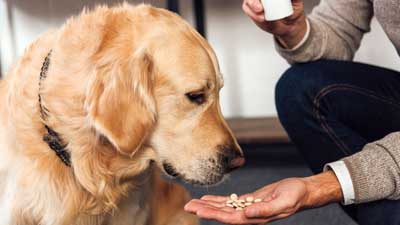- Size
- Smallest
- Small
- Small to Medium
- Medium
- Large
- Giant
- Characteristics
- Smartest
- Hypoallergenic
- Fluffy
- Best Guard
- Best Family
- Best for Kids
- Low Shedding
- Healthiest
- Police Dogs
- Most Calm
- Quietest
- Color
- White
- Black
- Grey
- Brown
- Blue
- Red
- Coat
- Hairless
- Short
- Long
- Origin
- Japan
- China
- Australia
- Germany
- Italy
- United States
- France
- Group
- Hound
- Terrier
- Herding
- Toy
- Working
- Sporting
How to Prevent Vomiting in Dogs

Most dog owners will at some point have to deal with their dog vomiting. It can be a very frightening experience, especially if you do not know how to handle it. The good news is that there are some things you can do to help prevent your dog from vomiting and make the experience less stressful for both of you.
In this article we will explore some tips on how to prevent vomiting in dogs. they will guide you through the whole process so that you can be sure your dog stays healthy and vomit-free.
Below are a few tips you can follow:
1. Be careful with human medications
Human medications can be very dangerous for dogs. Many of them are designed to be broken down by our liver, which dogs don't have. This can cause the medication to build up in their system and reach toxic levels. Even something as simple as ibuprofen can be dangerous for dogs. If you think your dog has ingested a human medication, it's important to call your veterinarian immediately.
2. Keep your dog away from the trash and other potential toxins
Dogs are curious creatures, and they'll often eat things that they shouldn't. This can include trash, chemicals, and other potential toxins. Keep them away from potential hazards. This means putting trash in a bin with a lid that they can't open, and keeping chemicals and other dangerous substances out of their reach.
3. Avoid giving your dog table scraps
Human food is one of the most common causes of vomiting in dogs. When we eat, our digestive system breaks down the food and sends it to our stomach. From there, it goes into our small intestine, where the nutrients are absorbed into our bloodstream.
However, dogs have a much shorter digestive system than we do. This means that they can't break down human food as easily, and it can end up sitting in their stomachs and fermenting. This can cause vomiting, diarrhea, and other digestive problems. Avoid these problems by sticking to dog food that's specifically designed for their digestive system.
4. Avoid sudden changes in diet
Another common cause of vomiting in dogs is a sudden change in diet. If you've recently switched your dog's food or introduced a new treat or type of food, that could be the cause of the vomiting. To avoid this, always introduce new foods slowly, mixing a small amount in with your dog's regular food at first.
5. Feed your dog smaller meals more often
This may seem like an obvious one, but it is often overlooked. Dogs have smaller stomachs than we do and can't handle large meals as well as we can. If you feed your dog a large meal, they are more likely to vomit it back up. Try breaking their food into smaller, more frequent meals throughout the day to help prevent vomiting. in doing so, you will also help improve their digestion.
6. Keep your dog hydrated
Dehydration is a common cause of vomiting, so it's important to make sure your dog stays well-hydrated. This is especially important in hot weather when your dog can lose a lot of fluids through panting. Offer your dog fresh, clean water regularly, and consider investing in a dog water fountain to encourage your dog to drink more.
7. Visit the vet regularly
Regular vet checkups are important for all dogs, but they're especially important for dogs who are prone to vomiting. That's because your vet can identify potential problems early and help you take steps to prevent them.
Conclusion
Vomiting in dogs doesn't always mean that something is wrong. Sometimes, it's just a result of eating too much or too fast. However, if your dog is vomiting frequently try implementing some of the tips above to help prevent it. And, of course, if you're ever concerned about your dog's health, be sure to visit the vet.





